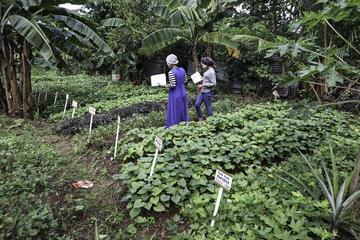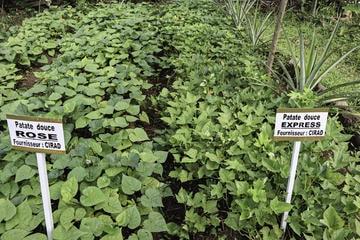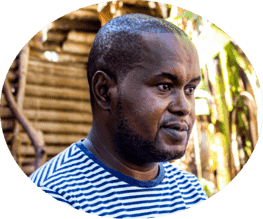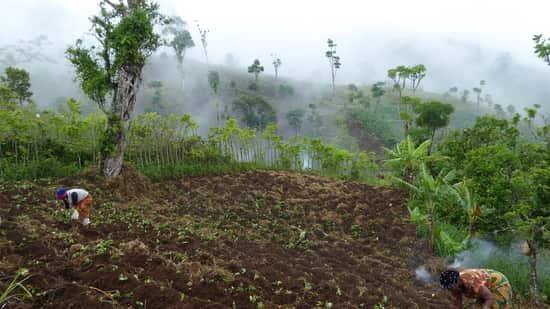The word of NGO Dahari in Comoros
Last update: 25 July 2022
Dahari, an NGO serving agricultural development in Anjouan (Comoros)...
Dahari is a Comorian NGO created in 2013 that supports the local communities of Anjouan in their agricultural development, sustainable management of natural resources and the preservation of biodiversity. Thus, faced with the progressive erosion of agricultural plant genetic resources appreciated by local communities, Dahari takes up the challenge of conserving these varieties of interest, by multiplying and distributing them.
By integrating the Germination network, Dahari expands its activities by testing varieties from other islands, thus expanding the offer of varieties adapted to the agro-ecological conditions of Anjouan. Emphasis is also placed on strengthening the training of farmers in the various multiplication techniques.
Concrete and useful achievements...
During a first phase, Dahari carried out a large inventory of local varieties of food plants among the producers of Anjouan, followed by an in situ morphological characterization of different varieties of banana, taro, macabo, cassava and yams according to a standardized method. Some of these varieties were collected and put in collection.
Dahari staff has been trained in good practices for collecting and storing plant resources with a constant concern for improving the traceability of the material during all these stages. During this training, the project coordinator, Jean-Pierre Labouisse, stressed the importance of establishing precise collection forms and keeping a register of the varieties introduced into the collection. Once the morphological characterization has been done, illustrated variety cards or posters with information on the organoleptic characteristics of the tubers or fruits and on the cultivation methods will be created.
Balance and prospects...
After three years spent within the Germination network, Hugh Doulton and Misbahou Mohamed, co-directors of Dahari, draw a first positive assessment, despite persistent difficulties.
Pagé's collection has been enriched with new varieties and its sanitary state has been improved. Twenty-two varieties of cassava, 5 varieties of Macabo, 9 varieties of taro, 25 varieties of banana, 16 varieties of sweet potato and 7 varieties of yams are present in this collection.
Due to the small areas available in this collection, the number of plants per variety and the width of the spacings are limited, below the recommended standards, increasing health risks. Therefore, recommendations have been made to optimize and secure the collection. An increased monitoring of the health status of the plants, a crop rotation for roots and tubers, and a re-implantation of the banana plot every 4 or 5 years should limit these risks. In addition, a reflection is being conducted to preserve, as a priority, the rarest varieties, which are interesting on nutritional level and according to their resistance to diseases or drought.
In the field, Hugh and Misbahou see that this work benefits local communities. Through Dahari's network of trained extension workers, farmers and seed producers are being trained in conservation and multiplication techniques in several partner villages. In some of them, small collections are now being built up, allowing them to become more autonomous with local production and exchange between local communities. This is particularly the case for sweet potatoes and bananas; on the latter, Dahari has worked with more than 1800 producers!
The NGO Dahari will continue its efforts to meet the needs of local communities for groundnut and potato seeds. Emphasis will also be placed on the local production of vegetable seeds to reduce dependence on imports.
Beyond this, at the scale of the Comoros archipelago, the Germination network and its Comorian partners will participate in a study on the genetic diversity of taro varieties. Varieties, present in the collections of INRAPE and Dahari will be genetically characterized in the laboratories of the Pole of Plant Protection (3P) in Saint-Pierre (France-Reunion).
There are still many prospects and projects in the field of conservation and valorization of agricultural plant genetic resources in Comoros, which PRéRAD-OI and the Germination network are trying to support. In this context, regional scientific cooperation, through sharing efforts and support in terms of capacity building, remains a real asset for each of the islands of the south-western Indian Ocean!
Last update: 25 July 2022





